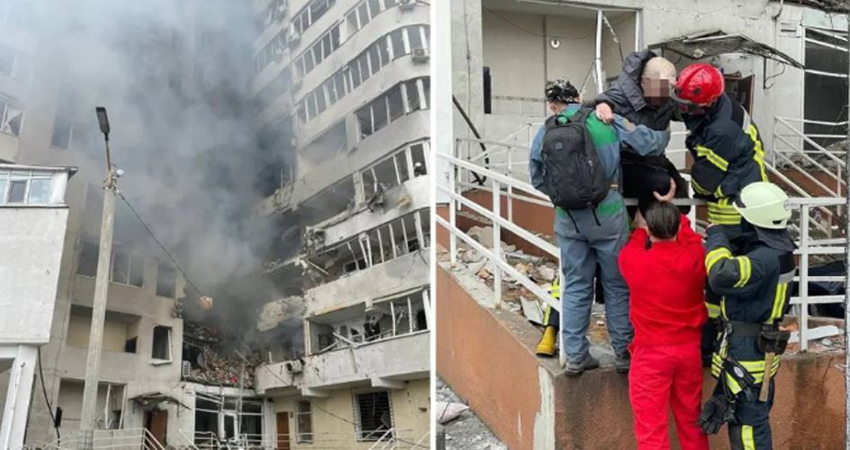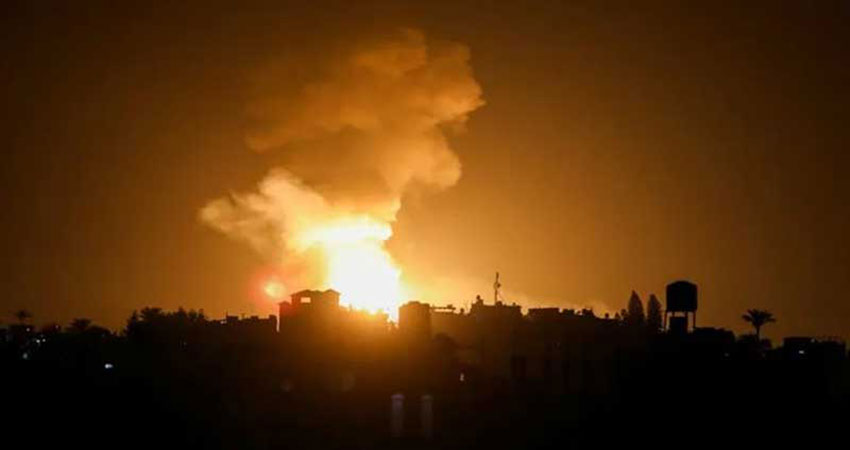A giant, swirling storm system billowing across the South killed at least six people Thursday in central Alabama, authorities said, and spawned a tornado that shredded the walls of homes, toppled roofs and uprooted trees in Selma.
Ernie Baggett, the emergency management director in Autauga County, Alabama, told The Associated Press he could confirm six fatalities were scattered across multiple homes in the Old Kingston community. Baggett said both mobile homes and conventional homes were damaged.
“It seems to have been a couple of different houses where people were at home,” Baggett said.
He said at least 12 people were injured severely enough to be taken to hospitals by emergency responders. Baggett said he didn’t know the extent of their injuries.
“There are some houses that were completely destroyed that haven’t been searched yet,” Autauga County Coroner Buster Barber said late Thursday, adding that crews “are still in the process of searching through rubble.”
Autauga County, Alabama, is 41 miles (66 kilometers) northeast of Selma.
Officials estimate that 40 to 50 homes were damaged or destroyed by storms that cut a strip across the county, Baggett said. He said crews were focused Thursday evening on cutting through downed trees to look for people who may be injured.
“Search and rescue is really more what’s going on right now,” Baggett said.
In Selma, a city etched in the history of the civil rights movement, brick buildings collapsed, cars were on their side and traffic poles were strewn about in the downtown area. Plumes of thick, black smoke rose over the city from a fire burning. It was not immediately known whether the storm caused the blaze.
A few blocks past the city’s famed Edmund Pettus Bridge, an enduring symbol of the voting rights movement, buildings were crumpled by the storm and trees blocked roadways.
Selma Mayor James Perkins said that no fatalities have been reported at this time, but first responders are continuing to assess the damage.
“People have been injured, but no fatalities,” Perkins said. “We have a lot of downed power lines. There is a lot of danger on the streets.”
The “large and extremely dangerous tornado” caused damage as it moved through the historic city, the National Weather Service said.
Nationwide, there were 33 separate tornado reports Thursday from the National Weather Service as of Thursday evening, with a handful of tornado warnings still in effect in Georgia, South Carolina and North Carolina. However, the reports were not yet confirmed and some of them could later be classified as wind damage after assessments are done in coming days.
In Alabama, there is damage “all over Selma,” former state Sen. Hank Sanders said he has been told.
“A tornado has definitely damaged Selma. In fact, it hit our house, but not head-on. It blew out windows in the bedroom and in the living room. It is raining through the roof in the kitchen,” Sanders said.
Selma, a city of about 18,000 residents, is about 50 miles (80 kilometers) west of the Alabama capital city of Montgomery.
Selma was a flashpoint of the civil rights movement. Alabama state troopers viciously attacked Black people advocating for voting rights as they marched across the Edmund Pettus Bridge on March 7, 1965. Among those beaten by law enforcement officers was John Lewis, whose skull was fractured. He went on to a long and distinguished career as a U.S. congressman.
After the tornado passed, Krishun Moore emerged from her home to the sound of children crying and screaming. She and her mother encouraged the kids to keep screaming until they found the two of them on top of the roof of a damaged apartment. She estimated the kids were about one and four years old. Both of them are OK, she said through Facebook messenger.
Malesha McVay drove parallel to the tornado with her family. She said it got less than a mile from her home before suddenly turning.
“We stopped and we prayed. We followed it and prayed,” she said. “It was a 100% God thing that it turned right before it hit my house.”
She took video of the giant twister, which would turn black as it swept away home after home.
“It would hit a house, and black smoke would swirl up,” she said. “It was very terrifying.”
About 40,000 customers were without power in Alabama Thursday night, according to PowerOutage.us, which tracks outages nationwide.
In Georgia, about 86,000 customers were without electricity Thursday night after the storm system carved a path across a tier of counties just south of Atlanta.
The storm hit in Griffin, south of Atlanta, with winds damaging a shopping area, local news outlets reported. A Hobby Lobby store partially lost its roof, and at least one car was flipped in the parking lot of a nearby Walmart.
Damage was also reported west of downtown Atlanta in Douglas County and Cobb County, with Cobb County government posting a damage report showing a crumbled cinder block wall at a warehouse in suburban Austell.
In Kentucky, the National Weather Service in Louisville confirmed that an EF-1 tornado struck Mercer County and said crews were surveying damage in a handful of other counties. There were reports of downed trees, power outages and other scattered damage from storms that moved through the state.
Three factors — a natural La Nina weather cycle, warming of the Gulf of Mexico likely related to climate change and a decades-long shift of tornadoes from the west to east — came together to make Thursday’s tornado outbreak unusual and damaging, said Victor Gensini, a meteorology professor at Northern Illinois University who studies tornado trends.
The La Nina, a cooling of parts of the Pacific that changes weather worldwide, was a factor in making a wavy jet stream that brought a cold front through, Gensini said. But that’s not enough for a tornado outbreak.
What’s needed is moisture. Normally the air in the Southeast is fairly dry this time of year but the dew point was twice what is normal, likely because of unusually warm water in the Gulf of Mexico, which is likely influenced by climate change. That moisture hit the cold front and everything was in place, Gensini said. Add to that the fact that over the last few decades tornadoes have been generally forming more east of the Mississippi River and less in what is considered tornado alley in the Great Plains.



















